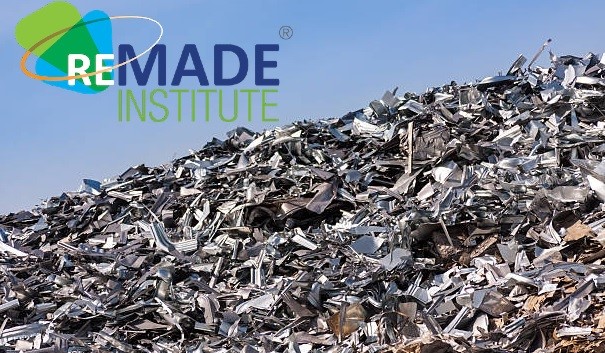

Reducing Embodied Energy and Decreasing Emissions (Remade) Institute, located in Rochester, New York, has successfully designed a “technological innovation capable of removing metallic impurities from recycled aluminium melts, thereby improving the quality of the aluminium and allowing it to be used for more diverse applications, including electric vehicle (EV) manufacturing.”
Remade has a 170-member toll on its public-private partnership institution and is partly funded by the United States Department of Energy (DOE). The aluminium refining technology and associated R&D for the ultimate outcome was first initiated in 2020 by Remade.
{alcircleadd}
The CEO of St. Louis-based Phinix LLC, Subodh Das, is at the helm of this R&D project, known as “Selective Recovery of Elements from Molten Aluminum Alloys”. Though the technology is awaiting patent approval, it has already been licensed by Phinix to an undisclosed secondary aluminium producer belonging to the United States.
The CEO of Remade, Nabil Nasr, narrated: “Congratulations to the entire project team, including Phinix’s Dr Das and our tech team at the Institute. A new technology license is a tremendous accomplishment. We believe this technology will be incredibly valuable to U.S.-based aluminium companies, including those that supply the automotive industry. Ultimately, it’s yet another key technology that accelerates the US’s transition to a circular economy and assists the nation in meeting its net zero by 2050 goal.”
Lead researcher Subodh Das examined: “This technology is capable of benefiting aluminium companies significantly. It’s capable of lowering their energy costs, increasing their profits and increasing the overall value of recycled aluminium considerably.”
The Chief Technology Officer at Remade, Magdi Azer, points out that the tech license is a major breakthrough in the public-private partnership domain as it aims at reusing, remanufacturing, recycling and extracting four primary energy-intensive elements:
Azer further elaborated: “Remade is selective in funding R&D projects that have the greatest potential to reduce energy consumption, decrease greenhouse gas emissions, decrease the use of raw or primary materials and increase the use of recycled or secondary materials. This particular R&D project [can] increase the resiliency of the US supply chain and decrease the nation’s reliance on imported virgin aluminium from other countries.”
The R&D project team also concurred that recycling aluminium saves 90 per cent of the energy needed to transform primary aluminium from its natural mineral ore form, bauxite. Moreover, aluminium is 100% recyclable and can withhold its original properties after innumerable transformational rounds, negating any material loss. In fact, 75% of the aluminium produced is still in the global material loop, creating a circular economy. To learn more about aluminium and its sustainability quotient, please spare some time to read AL Circle’s e-magazine, Green Aluminium: Sustainable Future for the Industry.
The US Geological Survey has calculated that the total consumption of aluminium in the US in 2022 was 5.1 million tonnes, from which almost 2.74 million tonnes were imported, 860,000 tonnes were domestically produced from bauxite ores, and the left 1.5 million tonnes was extracted regionally from aluminium scrap, as was released by Remade.
Responses








